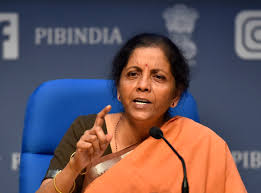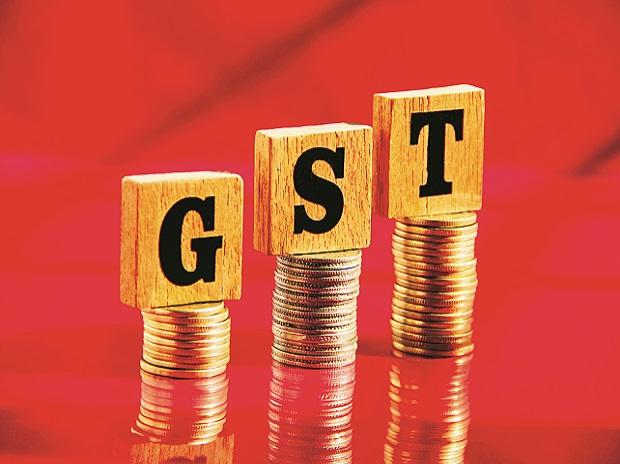- Union government clarifies it will honour its commitment to compensate state govts for the shortfall in tax collections
- A part of the compensation promised to states, of about ₹97,000 crore, would be paid out immediately
The Union government will honour its commitment to compensate states for the shortfall in collections of goods and services tax (GST) despite the strain on its finances because of the pandemic, a senior government official said.
A part of the compensation promised to states, ₹97,000 crore, would be paid out immediately, and the balance over a period to be decided by the GST Council, the apex body guiding the implementation of the indirect tax.
The clarification by the Union government comes just days before the GST Council meeting on 19 September. If states accept the new proposal, it could potentially avoid the ugly face-off that was seen in the last meeting between the Centre and the states. Differences in the previous meeting of the Council had begun to threaten the GST compact—which had been held up as the new template of cooperative federalism.
The senior government official said the Centre is committed to fully compensating states. “Hundred percent (will be paid out),” the person said. The person who did not want to be identified referred to the 20 May Mint interview of finance minister Nirmala Sitharaman in which she has made this explicit.
The initial compensation will be paid immediately through borrowing as this payment has to be done during the five-year transition period of the indirect tax reform. The shortfall due to covid-19 will be paid as and when the cess gets extended. Paying this after the fifth year by extending the cess will help states in avoiding a fiscal cliff after normal compensation ends in 2022.
“As long as that law, GST (Compensation to States) Act, 2017, exists, I have to honour it,” the finance minister had said in the interview.
The official said the Centre convened a meeting of the finance secretaries of states last week to clarify its position. In the nearly three-hour-long meeting, the Union government fleshed out the options shared with the states in the last meeting.
The bone of contention is the commitment made by the Centre to compensate states for any shortfall in collections that may arise during the implementation of GST. Dubbed the “grand bargain”, states gave up their right to impose taxes to make way for the new indirect tax regime. In return, states were guaranteed an annual growth in revenues of 14% till FY22.
The pandemic has, however, forced an unprecedented economic disruption, leading to lower tax receipts. The total compensation due from the Centre is ₹2.35 trillion.
At the last meeting of the GST Council, states were offered two borrowing options to cover either the revenue losses due to GST implementation or the entire shortfall, including the effect of the pandemic. The options involved states borrowing either under a special RBI window or from the market under different terms.
The Centre would prefer the states borrow to fund the payout as under law, cess collections accrue to states and only they can borrow against its security. Also, on an average, states have so far borrowed only 1.2% of gross state domestic product against the 5% allowed. “If the centre borrows, it will drive up yields and impact the cost of borrowing for everyone. Not the right thing to do when we are looking to revive the economy and encouraging companies to invest,” the official said.
To make it easier for states, the Centre has initiated a conversation with the Reserve Bank of India to open a special window wherein all states would access loans at the same rate.
Further, these borrowings will be linked to the collections under cess—so repayments will be settled through the receipts of cess and won’t pressure the budgets of the states.
Things had turned ugly in the previous GST Council meeting after states split along political lines with the opposition-ruled ones raising the ante. Non-BJP ruled states insisted that the Centre should borrow and pay the compensation, which could be repaid by the cess collection.
It will have to be seen whether the olive branch proffered by the Centre will mollify the states and bring them back to the negotiating table.
Experts welcomed the flexibility of the Centre on resolving the logjam related to the compensation issue. This sets the stage for more fruitful talks on changes to the GST compensation cess, they said. “This is a welcome step,” said N.R. Bhanumurthy, vice-chancellor of Dr B.R. Ambedkar School of Economics in Bengaluru.
M.S. Mani, a tax partner at Deloitte India, said it was essential to have a constructive discussion on the period for which the cess may need to be extended and whether there was a need to revisit the products that are subject to cess.
Source: livemint.com
***
[rainbow]Don’t miss the next GST Update / Article / Judicial pronouncement[/rainbow]
Subscribe to our newsletter from FREE to stay updated on GST Law
Resolve your GST queries from national level experts on GST free of cost.
TW Editorial Team comprises of team of experienced Chartered Accountants and Advocates devoted to spread the knowledge of GST amongst the various stakeholders.



